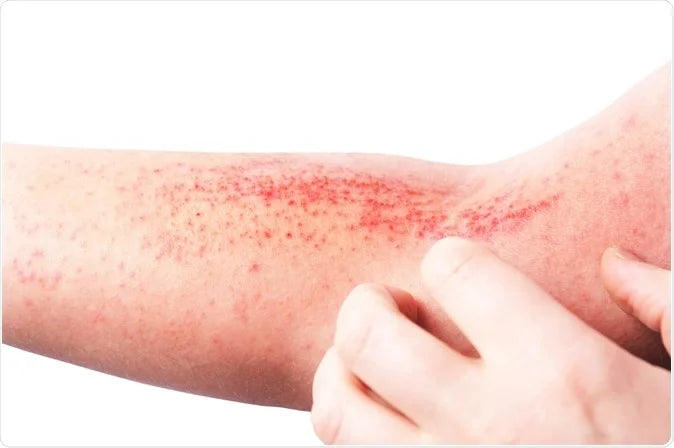Atopic Dermatitis and Genetics: Insights from Recent Research
Atopic dermatitis, commonly known as eczema, is a chronic inflammatory skin condition that affects millions of people worldwide. While genetics play a significant role in the development of the disease, there are also non-genetic risk factors that can trigger and worsen symptoms.
One of the main non-genetic risk factors is a personal or family history of eczema, allergy, allergic rhinitis, or asthma. These conditions can indicate a genetic predisposition to atopic dermatitis. Other triggers include stress, allergens (both food and airborne), skin irritants such as wool or synthetic fibers, hot water, and certain soaps and detergents. In addition, some microorganisms, such as S. aureus, can exacerbate symptoms.
The symptoms of atopic dermatitis can vary from person to person, but typically include dry, itchy skin; reddish to grayish-brown spots on the hands, feet, ankles, wrists, neck, chest, inner elbows, or face; thickened, cracked, and scaly skin; and sensitivity and inflammation from scratching.
While there is no cure for atopic dermatitis, there are steps that can be taken to prevent episodes and minimize symptoms. These include using skin moisturizers at least twice a day, avoiding triggers that worsen the condition such as certain foods, sweat, stress, soaps, and detergents, taking shorter baths or showers with mild soaps and avoiding very hot water, and drying with care to avoid strong friction.
Research has shown that atopic dermatitis has a high genetic influence, with heritability estimated at 80% from twin studies. Recently, a large association study involving thousands of samples from various databases identified 26 susceptibility loci associated with atopic dermatitis, with variants in filaggrin (encoded by the FLG gene) and genes involved in immune response, such as IL6, being the main risk factors.
Genetic testing can provide valuable information for individuals with atopic dermatitis. Companies such as TellmeGen offer genetic testing that can identify genetic variants associated with the disease, as well as other health conditions and traits. This information can help individuals make informed decisions about their health and take steps to manage their condition more effectively.













